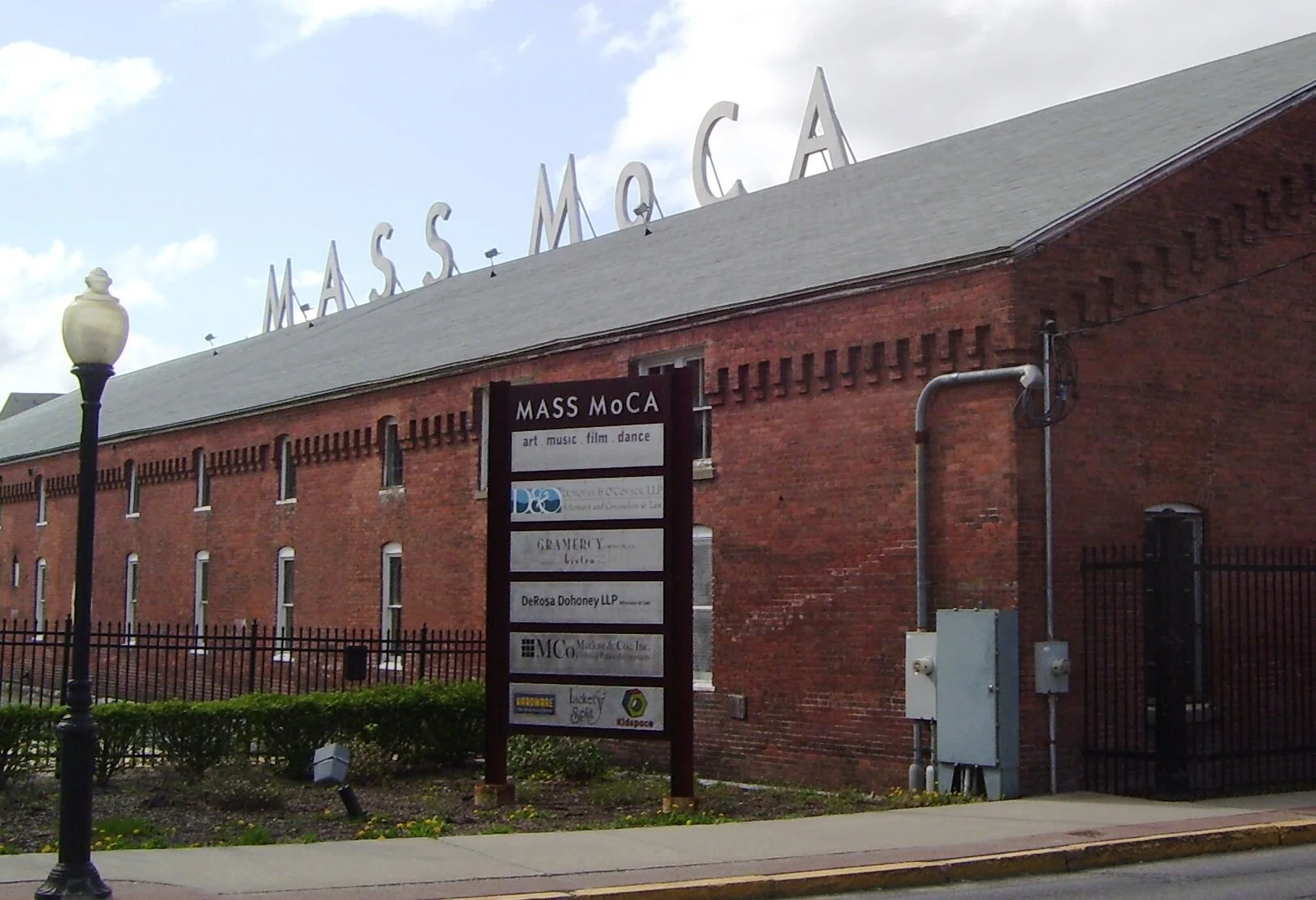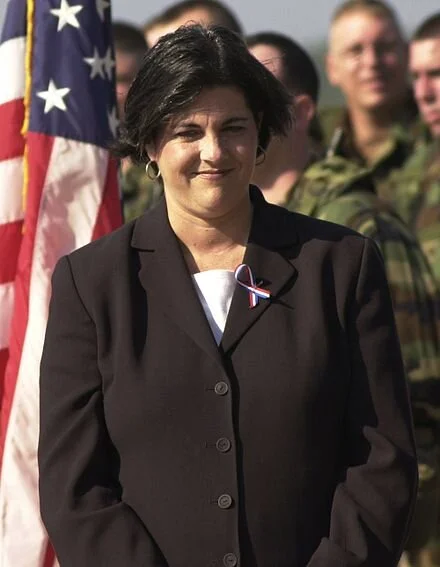
‘Beauty of impermanence’
Work by North Adams-based artist Tom Schneider in his show “Ecstatic Gates,’’ at Bromfield Gallery, Boston, through Oct. 29.
The gallery says:
“Tom Schneider’s current series, ‘Ecstatic Gates,’ is a collection of 13 wall sculptures. Each piece is a miniature shrine or chapel and expresses the ethereal duality of the eternal and finite.
“Inspired by the beauty of impermanence, each piece incorporates bones, natural fibers, and decaying wood grains. The shimmer of gold peeking through the doors offers the suggestion of what lies beyond our world.
“Schneider’s sculptures are influenced by the elegant lines of Asian architecture and the Japanese aesthetic of wabi-sabi. They thereby honor imperfection, transience, the rawness of the natural world, and the beauty found in small and humble things.’
The Hoosic River runs through North Adams and was essential to its growth, providing power for the mills that were built along its banks as well as those of its branches. Many artists can be found in surviving mill buildings today.
The Norad Mill, in North Adams. The woolen factory was built in 1863 in an Italianate style and was added to the National Register of Historic Places in 1985.
— Photo by Beyond My Ken
Compressed loves and hates
The Blackinton section of North Adams, Mass., in 1889.
In Natural Bridge State Park, a Massachusetts state park in North Adams. Named for its natural bridge of white marble, unique in North America, the park also offers woodland walks with views of a dam made of white marble, and a picturesque old marble quarry.
“The village viewed from the top of the hill to the westward, at sunset, has a peculiarly happy and peaceful look; it lies on a level, surrounded by hills, and seems as if it lay in the hollow of a large hand….It is amusing to see all the distributed property, the aristocracy and commonality, the various and conflicting interests of the town, the loves and hates, compressed into a space which the eye takes in as completely as the arrangement of a tea-table.
Nathaniel Hawthorne (1804-1864), on North Adams, Mass., in The American Notebooks (1838). North Adams, in The Berkshires, would become a thriving factory town. Manufacturing started to leave decades ago, and North Adams is now an arts center, particularly because of the Massachusetts Museum of Contemporary Art.
‘Generational changes’
“Speak Spanish, Yo Hablo Inglés” (oil on stretched canvas and wood panel substrate, mounted on 7 aluminum panels), by Kukuli Velarde, in Ferrin Contemporary’s (North Adams, Mass.) new show, “In Dialogue: Cristina Córdova & Kukuli Velarde,” Oct. 18-Nov. 28.
The gallery says that Córdova and Velarde navigate their Latina identity and the world through their works. “Each explores subjects drawn from both their cultural histories and their roles as mothers, daughters and parents of young women documenting their own and their subjects’ generational changes.”
Main Street of the former industrial city and now major art center of North Adams, Mass. The Massachusetts Museum of Contemporary Art there is the largest such institution in the United States.
The motto refers to North Adams being at the western end of the five-mile-long Hoosac (Railroad) Tunnel.
John O. Harney: Boston Fed chief departs and other regional comings and goings
The Federal Reserve Bank of Boston is the tall building at the left.
From The New England Board of Higher Education (nebhe.org)
BOSTON
Boston Fed President and CEO Eric S. Rosengren, who had long planned to retire in June 2022, left the post Sept. 30 to deal with a worsening kidney condition. Rosengren announced that he has had the condition for many years and qualified for the kidney-transplant list in June 2020.
Rosengren worked 35 years at the Boston Fed and 14 as its president. Among his accomplishments, he championed the bank’s outreach to low- and moderate-income communities, hosted foreclosure-prevention workshops during the Great Recession, created a grant competition to support post-industrial New England communities and helped lead the Federal Reserve’s “Racism and the Economy” forums. Rosengren made the Boston Fed a key collaborator with NEBHE, including giving the keynote address at NEBHE’s major 2011 “New England Works” Summit on Bridging Higher Education and the Workforce. The Boston Fed announced that First Vice President and chief operating officer Kenneth C. Montgomery will serve as interim president and CEO.
The University of Rhode Island appointed Carlos Lopez Estrada, deputy director of administration and senior adviser to Pawtucket Mayor Donald R. Grebien, and Lauren Broccoli Burgess, a registered lobbyist and assistant director of government relations for the American Veterinary Medical Association, as the university’s directors of legislative and government relations. Lopez Estrada will focus on state and regional collaborations and Brocolli Burgess on federal government relations.
Lasell University appointed Lynne Celli as dean of graduate and professional studies. Celli joins Lasell from Endicott College, where she served as executive director of professional education and leadership, dean of graduate professional education, and associate dean for graduate education programs. She is also the former superintendent for Swampscott (Mass.) Public Schools.
Berkshire Community College (BCC) appointed Maureen McLaughlin as director of strategic initiatives. McLaughlin spent more than 20 years in the high-tech industry working on IPOs and acquisitions, as well as 10 years in public elementary schools supporting severe special needs students and students in crisis. BCC announced McLaughlin’s appointment among 10 new staff and faculty members.
Yale New Haven Health (YNHH) CEO Marna Borgstrom announced that she will retire next spring. She will be succeeded as head of the regional hospital system by current YNHH President and former Hospital of Saint Raphael CEO Christopher O’Connor.
— Photo by Beyond My Ken
The Massachusetts Museum of Contemporary Art (MASS MoCA) named Kristy Edmunds as its new director, succeeding founding director Joseph Thompson, who retired in late 2020 after 32 years leading the North Adams. Mass., museum. Edmunds has served as executive and artistic director at UCLA’s Center for the Art of Performance since 2011.
John O. Harney is executive editor of NEBHE’s New England Journal of Higher Education.
What science can't handle
The 11 volumes of The Durants’ Story of Civilization
“Philosophy accepts the hard and hazardous task of dealing with problems not yet open to the methods of science — problems like good and evil, beauty and ugliness, order and freedom, life and death.’’
— Will Durant (1885-1981), historian, in The Story of Philosophy. Born in North Adams, Mass., of French-Canadian parents, the once-famous Durant was best known for the work The Story of Civilization, 11 volumes written in collaboration with his wife, Ariel Durant, and published between 1935 and 1975.
'Special plans in heaven'
View of North Adams in 2005
“My death was arranged by special plans in Heaven
And only occasioned comment by ten persons in Adams, Massachusetts.
The best thing ever said about me
Was that I was deft at specifying trump.’’
— From “A New England Bachelor,”’ by Richard Eberhart (1904-2005), a Maine- and New Hampshire-based Pulitzer Prize-winning poet.
In North Adams, the Massachusetts Museum of Contemporary Art (MASS MoCA), formerly the Arnold Print Works and a facility of Sprague Electronics
Former Mass. Gov. Swift talks about education/career innovation and New England challenges
Jane Swift during her governorship
From The New England Journal of Higher Education (NEJHE), a service of the New England Board of Higher Education (NEBHE.ORG)
Massachusetts Gov. Jane Swift became president of the education innovation organization LearnLaunch in July 2019.
In 1998, Swift was elected lieutenant governor of Massachusetts. Three years later, when Gov. Paul Cellucci resigned to become U.S. ambassador to Canada, Swift became the youngest female governor in U.S. history. She served from April 10, 2001 to Jan. 2, 2003.
Besides being recognized for her work in education and innovation, Swift is a leader on women’s issues and work-family integration. At the time of her elevation to governor, Swift was eight months pregnant with twins.
As governor, Swift is credited with improving public education through strong accountability and high standards and by aligning statewide curriculum while implementing remediation programs for struggling students.
Recently, Swift was appointed Jerome Lyle Rappaport Visiting Professor in Law and Public Policy at Boston College Law School for the spring 2020 semester, where she teaches a seminar on “Governing in the Facebook Era: Privacy, Propaganda, and Public Good.”
In the following Q&A, NEJHE Executive Editor John O. Harney asks Swift about her insights on higher education, technology and more.
Harney: What have you learned so far since taking over LearnLaunch?
Swift: The five founders of LearnLaunch created a vibrant ecosystem with enormous potential. We have significant mindshare, particularly among early-stage entrepreneurs in edtech and the most innovative education leaders in the K-12 systems in Massachusetts—the early adopters, if you will. LearnLaunch has provided high-quality services to those early-stage companies and early adopters. We also established a vibrant conference that brings together a diverse set of education innovation stakeholders. Our challenge now is to extend our reach to achieve sustained leadership impact across the education technology and innovation ecosystem.
Harney: What are real examples of ways ed tech can help close the equity gap?
Swift: It is critical to remember that technology is only a tool. Serving all students requires excellent teaching which can be enhanced and augmented by tools and innovations, technology tools being one example. There is research from MIT demonstrating the efficacy of middle-school math edtech tools. Oftentimes, we forget that implementation requires training that is not only as important but perhaps more important when using innovative new teaching tools.
Harney: In addition to the marquee sessions at Across Boundaries events, what are some of the “sleepers” this year?
Swift: We’ve convened a “Future of Work” showcase for the first time where some of the most innovative providers of adult-learning opportunities will be gathering. We’ll be pulling together table conversations during that time, and what happens there will be fairly organic. With some advance planning, I’ve found that the partnerships, synergies and solutions that can be formed and sustained after the conference is packed up for another year often happen when people have the time to discuss issues in-depth with like-minded individuals. This is where the real progress happens. We are hoping to seed some of that magic.
Harney: What are some of the other important things happening in the LearnLaunch “community”?
Swift: You will see the first event of our new partnership with ASA (American Student Assistance) at the conference with some keynotes, panels and activities. We will be following up later in the year with a summit we are co-hosting with them around helping students to discover their passions and possible pathways to careers and training opportunities as early as middle school. It is something I have done a lot with my three daughters, so it is an area of personal passion but also incredibly important in this dynamic, technology-driven economy we live in. We are also hoping to secure final funding to support the development of a strategic plan that will help LearnLaunch take advantage of its many assets, refocus our efforts, and better assert our leadership in Boston, in Massachusetts and in New England.
Harney: What are some of the key topics in your BC course?
Swift: Social media and the speed of innovation more generally are challenging government in ways we have never experienced before. This is happening in education where the tools available to students and teachers like AI (artificial intelligence) and AR (augmented reality) are flying at them fast and furiously, and where the demands on our system to prepare the next-generation workforce are dizzying. But really, it is happening in every sector of the economy and it is happening fast. Yet, government isn’t designed to work fast. So the class, called “Governing in the Era of Facebook: Privacy, Propaganda & Public Good” will explore how that plays out at a really practical level: in campaigns and communication for elected officials at the state and local level and in many different policy areas. One reason I love to teach is that I find that a well-constructed course can lead to the teacher learning as much as teaching and that is certainly an outcome I am aiming for this semester.
Harney: What do you make of the recent travails of higher education, including closings of several New England institutions under pressure from declining enrollment, state and federal cuts and changing perceptions of value?
Swift: As a parent of three traditional college students, I am not sure your article is long enough for me to answer this question. As parents and students, we know the world is changing quickly and I see that in ways that have important implications. Innovators have jumped in to respond to the gaps that have developed where learners feel their needs may not be met in the traditional system. The capacity of the traditional system to pivot is constrained by myriad factors. Change creates uncertainty and that combined with the demographic shifts in New England will reshape the landscape of higher education for a generation. Traditionally, New England has been at the forefront of the leading innovations in education and I am hopeful we will give birth to some exciting new models again that will deliver value to learners and meet the needs of our economy.
Harney: You’re from North Adams, Mass., and you went to Trinity College in Hartford. How have those communities informed your outlook? How important is a sense of regionalism and “New Englandness” to today’s challenges? How has technology changed the importance of “place”?
Swift: You are asking tough questions that are difficult to address with short answers. My journey from North Adams to Trinity College to the professional success I’ve had inform everything I do. My hometown did not have the highly rated public school system that many of my classmates at Trinity were privileged to attend. I had to work hard to catch up—but, I still was very, very fortunate to have access to a top-notch college education with the assistance of lots of financial aid—that gave me unlimited opportunity. I have worked throughout my life to democratize access to excellence in education and to have that equate to unfettered access to opportunity to find a job that you love, that can be rewarding, and to break down class barriers. We have made advances in education excellence in Massachusetts and that has been a national model, but there is still a lot of work to be done particularly on the equity front. And yet, at the same time, on the issues of access to affordable postsecondary options which provide limitless opportunity and, yes, upward mobility, I feel like we’ve hit some real roadblocks.
Harney: What do you make of the recent Boston Globe piece about women’s places in the top-paying Massachusetts jobs?
Swift: Progress for women has been slower than I would like in many areas. We still have gaps in our childcare system and in offering maternity leave. But I do see progress and one of things I am most excited to do in my return to Massachusetts is to keep working with women and men to nurture the next generation of leaders. My appointment at Boston College is just one way I am hoping to do that.
Harney: What’s next for you?
Swift: I have been lucky to find platforms in my career that allow me to work on issues I care about. I have a pretty good number of those right now—the ability to implement and drive change at LearnLaunch, to teach and learn at BC Law, and to work with great entrepreneurs and leaders, many of whom are women, through the board work I do. I find it tremendously rewarding and sometimes a little chaotic.














